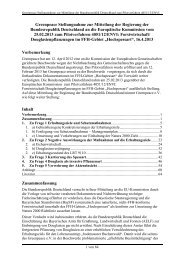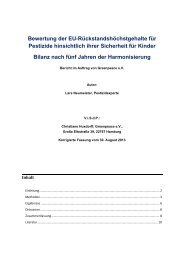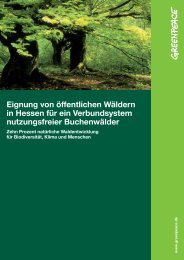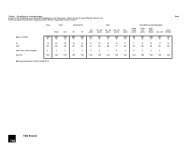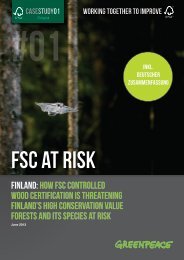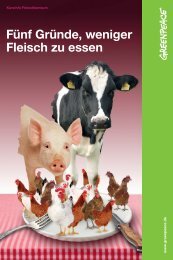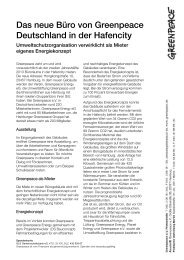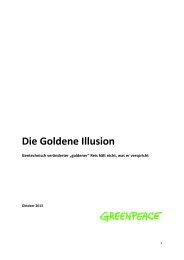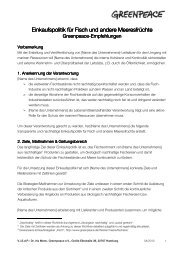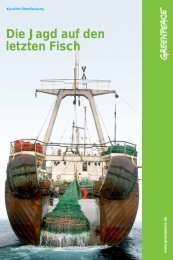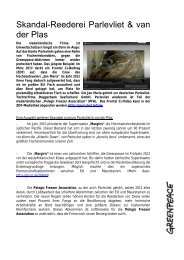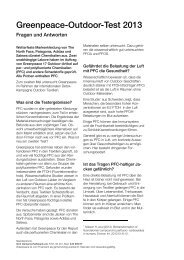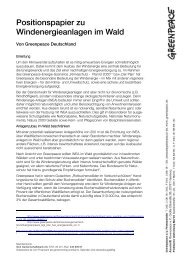Untitled - Greenpeace
Untitled - Greenpeace
Untitled - Greenpeace
Create successful ePaper yourself
Turn your PDF publications into a flip-book with our unique Google optimized e-Paper software.
42<br />
CARVING UP THE CONGO<br />
©<strong>Greenpeace</strong>/Reynaers<br />
INDUSTRIAL LOGGING-LED POVERTY ALLEVIATION IS A CHARADE<br />
The stated aim of the World Bank’s strategy<br />
for reform of the logging sector is to help<br />
alleviate poverty. The Forestry Code which it<br />
persuaded the DRC Government to adopt<br />
makes provisions for taxes collected from<br />
logging operations to be redistributed back<br />
from national to local level, to provide money<br />
for regional development. It also formalises a<br />
system whereby logging companies negotiate<br />
direct compensation with local communities<br />
for access to their forest, and requires<br />
companies to develop forest management<br />
plans, one aspect of which is to ensure that<br />
communities retain rights to forest resources<br />
and services.<br />
However, given the context of corruption that<br />
typifies the DRC, there is little realistic hope<br />
that the industrial logging model of<br />
development will improve people’s quality of<br />
life. In fact, as <strong>Greenpeace</strong> research and<br />
investigations show, money from taxation<br />
rarely materialises, the direct development<br />
offered to local communities by logging<br />
companies is a cruel deception, and industrial<br />
logging degrades the essential forest resources<br />
on which the vast majority of the DRC’s people<br />
depend – while communities who challenge<br />
logging companies over these issues may well<br />
face a violent response. In this way, the people<br />
of the DRC are left poorer as logging<br />
companies plunder their forests.<br />
‘Any discussion of forests and<br />
forestry in the DRC should<br />
have as its primary focus the<br />
fact that the vast majority of<br />
people in the DRC depend on<br />
wild plants and animals for<br />
their health, for their energy,<br />
for their medicines, for their<br />
food and in many cases for<br />
their cash income.’ 238<br />
David Kaimowitz, Chairman,<br />
CIFOR, 2004



